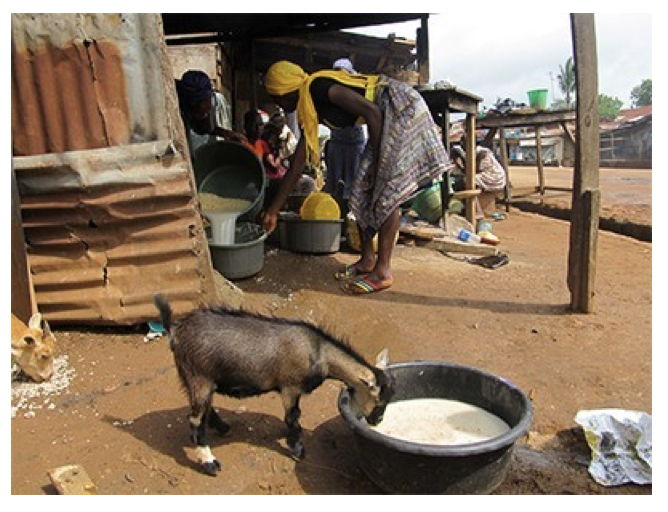Source: IFAS Matters)
The University of Florida Institute of Food and Agricultural Sciences (IFAS) announces an $8.7 million grant from the Bill & Melinda Gates Foundation over five years to fund research aimed at tackling global hunger in Ethiopia and Burkina Faso.
“This grant perfectly aligns with our current projects to improve the quality and quantity of food in developing nations,” said Jack Payne, UF senior vice president for agriculture and natural resources. “This is a significant investment in the work being accomplished at UF/IFAS.”
Livestock can help families rise from poverty and malnutrition by not only providing meat, eggs and dairy products, but also by allowing families to increase their income potential as they sell animal products to neighbors, said Adegbola Adesogan, director of the Feed the Future Innovation Lab for Livestock Systems at the University of Florida, and professor of animal sciences. “The grant is important because it will help poor farmers feed animals better diets. This research is particularly relevant in the face of climate change, and will develop environmentally-responsible strategies for farmers living in increasingly stressed environments,” he said.
Another component of the research in Ethiopia will focus on helping children under the age of 2 avoid chronic gut inflammation by limiting exposure to chicken droppings. The inflammation, known as environmental enteric dysfunction (EED), likely causes chronic malnutrition and stunting, said the project’s leader Arie Havelaar, UF preeminent professor of global food safety and zoonoses (diseases of animals that are transmissible to humans) in the animal sciences department. Approximately 40 percent of all children under 5 in Ethiopia suffer from malnutrition and stunting, he said.
“Safe nutrition for children remains a major challenge for the rural people of Ethiopia,” Havelaar said. “Basic research questions remain about EED’s pathways and effects. Our project will break new ground in determining how contaminated environments cause stunting in children and help verify steps to prevent it,” said Havelaar, who is also affiliated with the UF/IFAS Institute for Sustainable Food Systems and the Emerging Pathogens Institute at UF.

